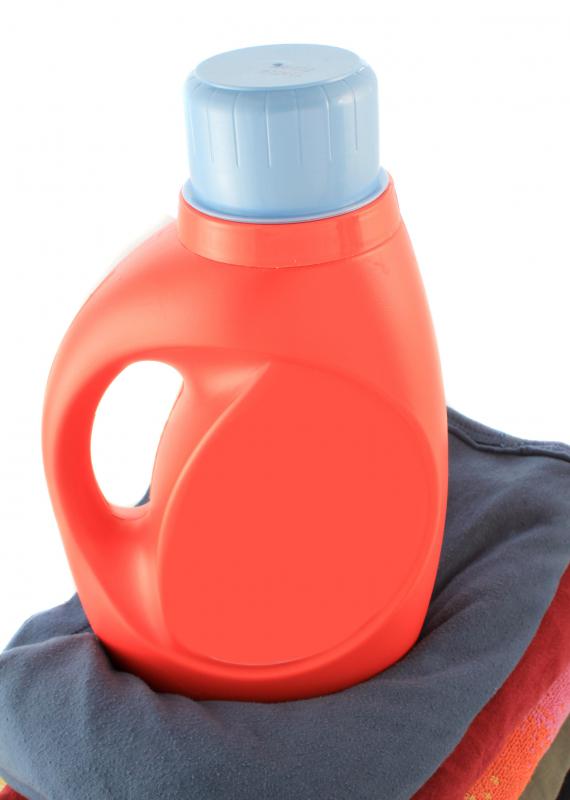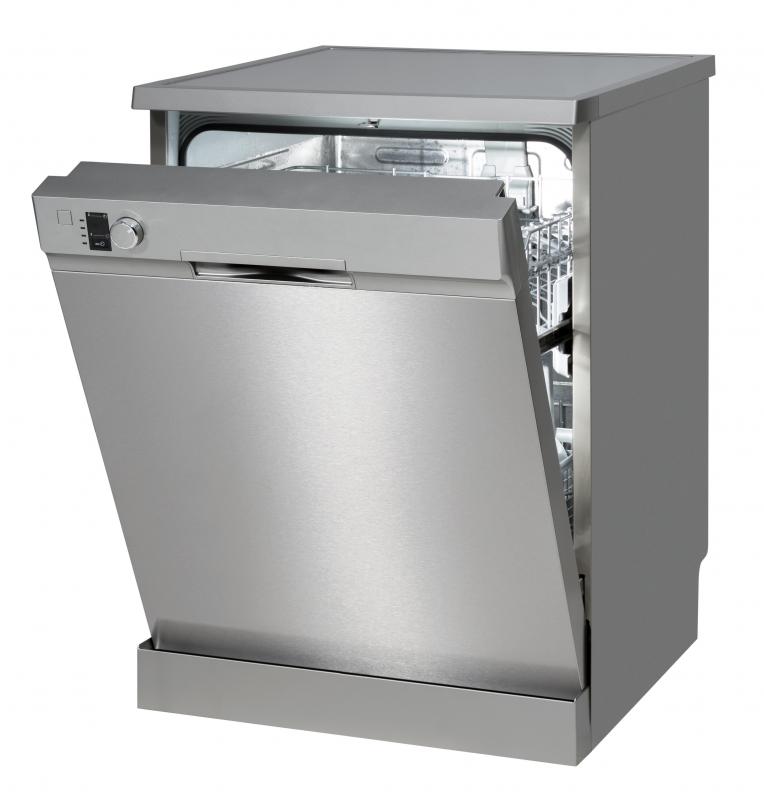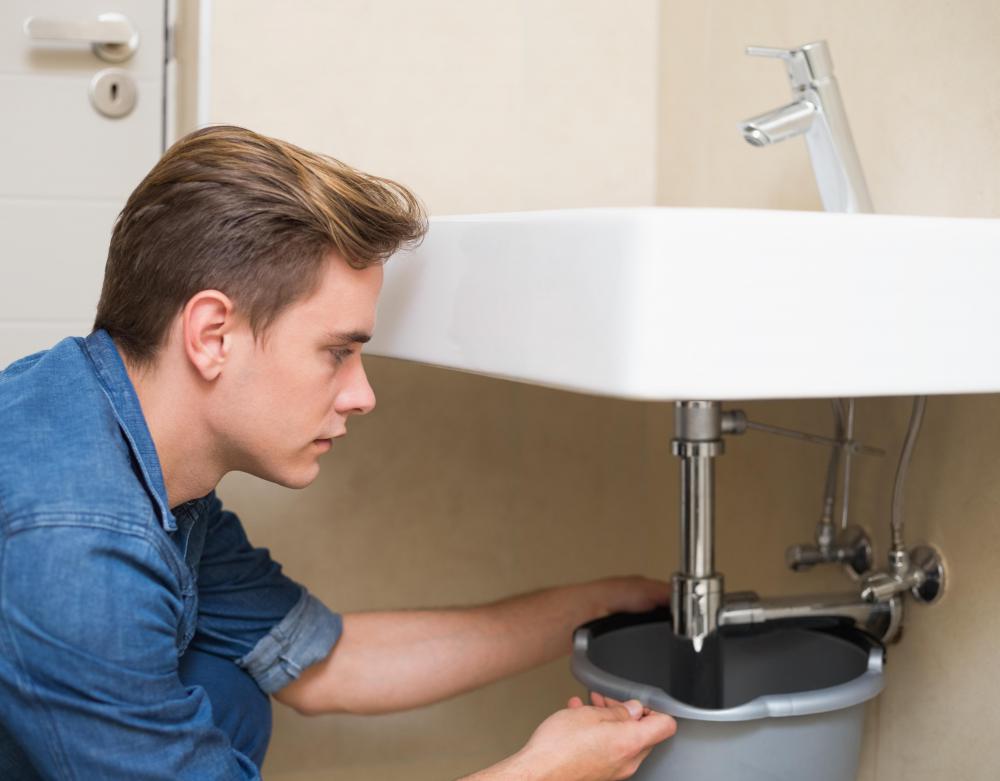At HomeQuestionsAnswered, we're committed to delivering accurate, trustworthy information. Our expert-authored content is rigorously fact-checked and sourced from credible authorities. Discover how we uphold the highest standards in providing you with reliable knowledge.
What is Hard Water?
Hard water is water with a high dissolved mineral content, while soft water has a relatively low concentrated of dissolved minerals. All water, except for water that has been meticulously distilled, will have some dissolved minerals, since water is an excellent solvent and it readily combines with the substances it comes into contact with. High concentrations of minerals can be problematic, however. Hard water is not generally harmful, but it can be irritating and will shorten the life of home appliances like dishwashers and washing machines.
The most common minerals dissolved in household water are calcium and magnesium, although other minerals may certainly be present as well. These substances can cause serious problems for home appliances when they precipitate out, forming a characteristic scale that may accumulate in pipes and around faucets. If the scale is not promptly removed, it can start to clog pipes and can damage things like water heaters and dishwashers, which cannot cope with the minerals.

Most people notice problems with hard water not because of the scale formation, but because it interferes with the action of soap. Soaps and detergents lather poorly in water that contains minerals, and as a result people tend to use more, causing thick scum to form. In addition, it's hard to get clean properly when washing with hard water, and some people feel constantly slightly dirty when they wash with it. It also leaves residue in hair that can make hair hard to manage.

There are a number of ways to deal with hard water. In some cases, water can be filtered before it even reaches household pipes, although this approach can be expensive. Some water districts may choose to filter or treat their water to remove minerals, if hardness is a consistent problem. The problem can also be solved with the use of water softeners, chemicals that help to pull the dissolved minerals out.

People who have hard water should use detergents that are specially formulated for it. Laundry detergents will help to get clothes clean if items aren't as crisp and fresh as they should be, and some cosmetics companies have also designed shower products that are meant for use in this type of water. These soaps and shampoos will remove mineral buildup and soften the water a person bathes with so that he or she can feel clean.

It's also important for homeowners with hard water to keep an eye on their pipes and appliances and remove the calcified buildup on a regular basis. Homeowners will probably have to replace water heaters more frequently than people with soft water, and they may want to consider installing a water filter on the intake valve of the hot water heater to soften the water, helping it to last longer. Filters are also available for dishwashers and washing machines.
AS FEATURED ON:
AS FEATURED ON:

















Discussion Comments
If you can't get squeaky clean, it's probably sulfur in the water, and sulfur algae on your skin.
what is it that causes hard water to become thick when soap and detergents are added to it?
OK so hard water isn't relatively harmful if consumed?
so is hard water bad for animals?
it is soft water.
Is it hard water or soft water if I can't remove the soap while showering? I can't get a squeaky clean skin.
Post your comments